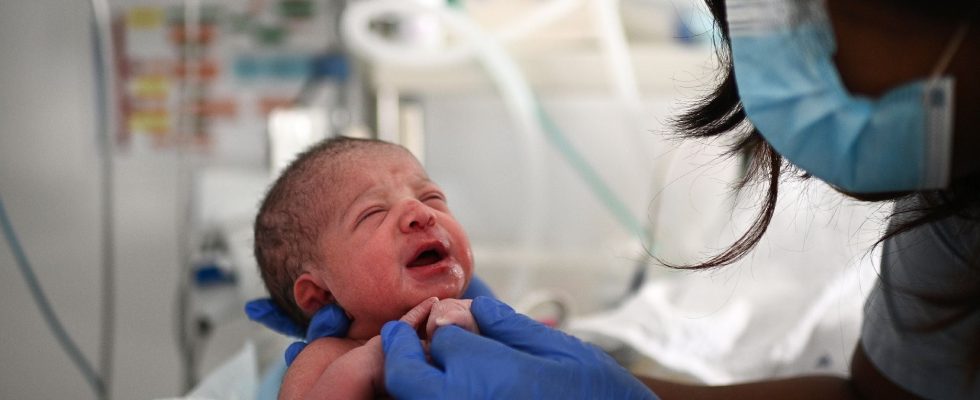Aurore Bergé announced it in the columns of The Express last November: for several weeks, the executive has been working on an evolution of parents’ rights upon the arrival of a child. Six months later, the options envisaged by the executive are becoming clearer.
In The gallery, his successor, Sarah El Haïry confirmed the government’s determination to transform the system. So no more “parental leave”, now “birth leave”.
In addition to the name change, the entire system currently in force should be rethought. Among the projects in progress, that of the compensation paid to parents during the duration of the leave. While this currently caps at 448 euros per month, the allowance should increase by several hundred euros. “50% of the salary” of each parent, within the limit of 1,900 euros per month, announced the Minister Delegate in charge of Children, Youth and Families, specifying that “voluntary employers will be able to contribute to the system”.
The reduced duration, a bargaining chip for the increase in compensation
A “new right for the middle classes”, made possible by a modification of its duration, considered too “long” by the government. “This pushes women, often the most precarious, away from employment,” laments the minister this Sunday, May 12. So, while “parental leave” in its current form can sometimes extend up to three years, “birth leave” would be reduced to three months.
“The father and mother will be able to stop for three months each, when a bond for life is formed,” argues Sarah El Haïry. In The ExpressAurore Bergé had already spoken out in favor of shortening the duration of parental leave, arguing the possibility for parents to take their leave “at the same time or one after the other, full time or full time partial”.
Investment or expense?
An overhaul of the system which could, however, weigh on state coffers as the government seeks to make savings. “This measure will have an additional cost initially,” recognizes the minister. But rather than using the term “expenditure”, the government prefers to speak of “investments”. “For the country, for the birth rate and for full employment,” says Sarah El Haïry. And to argue: “Couples on average would like to have between two and three children, but they have between one and two: we must help the French to live their lives”.
It remains to “find a proposal adapted to different situations: the self-employed and liberal professions, part-time workers, multiple births…”, explains Sarah El Haïry. A consultation between employers, unions and associations must be launched on May 15. Just in time for birth leave to find “a legal translation in the Social Security financing bill for 2025”, launches the minister with an optimistic look.
